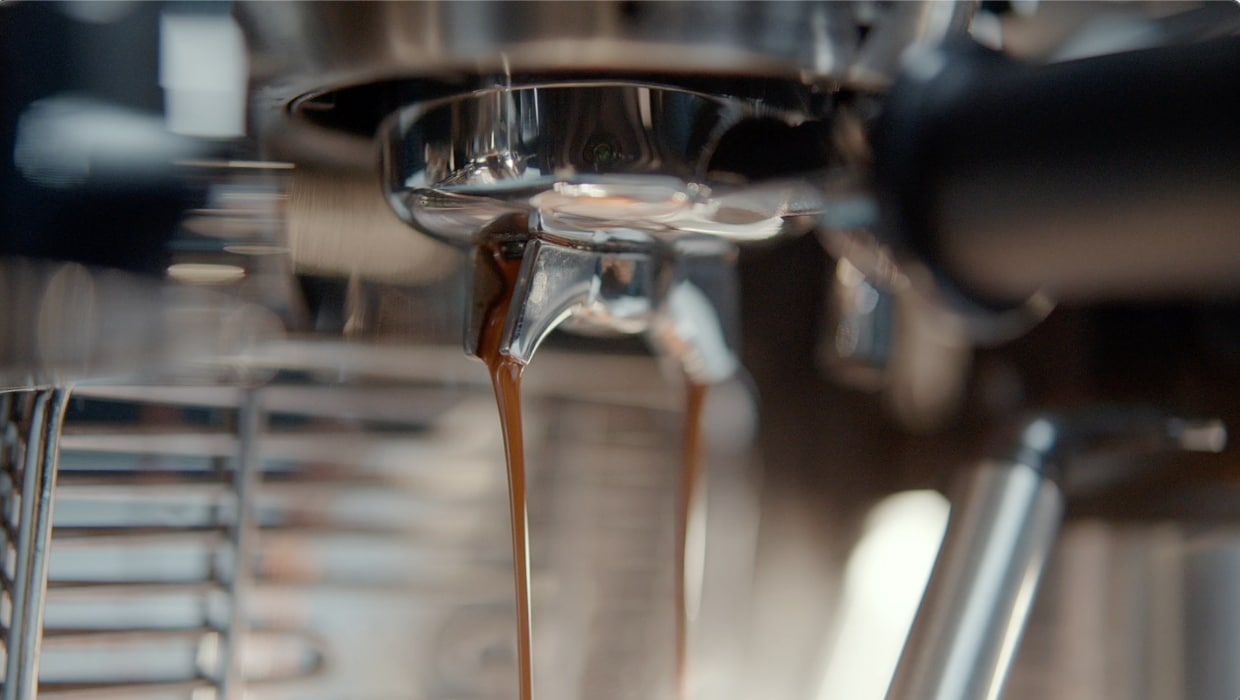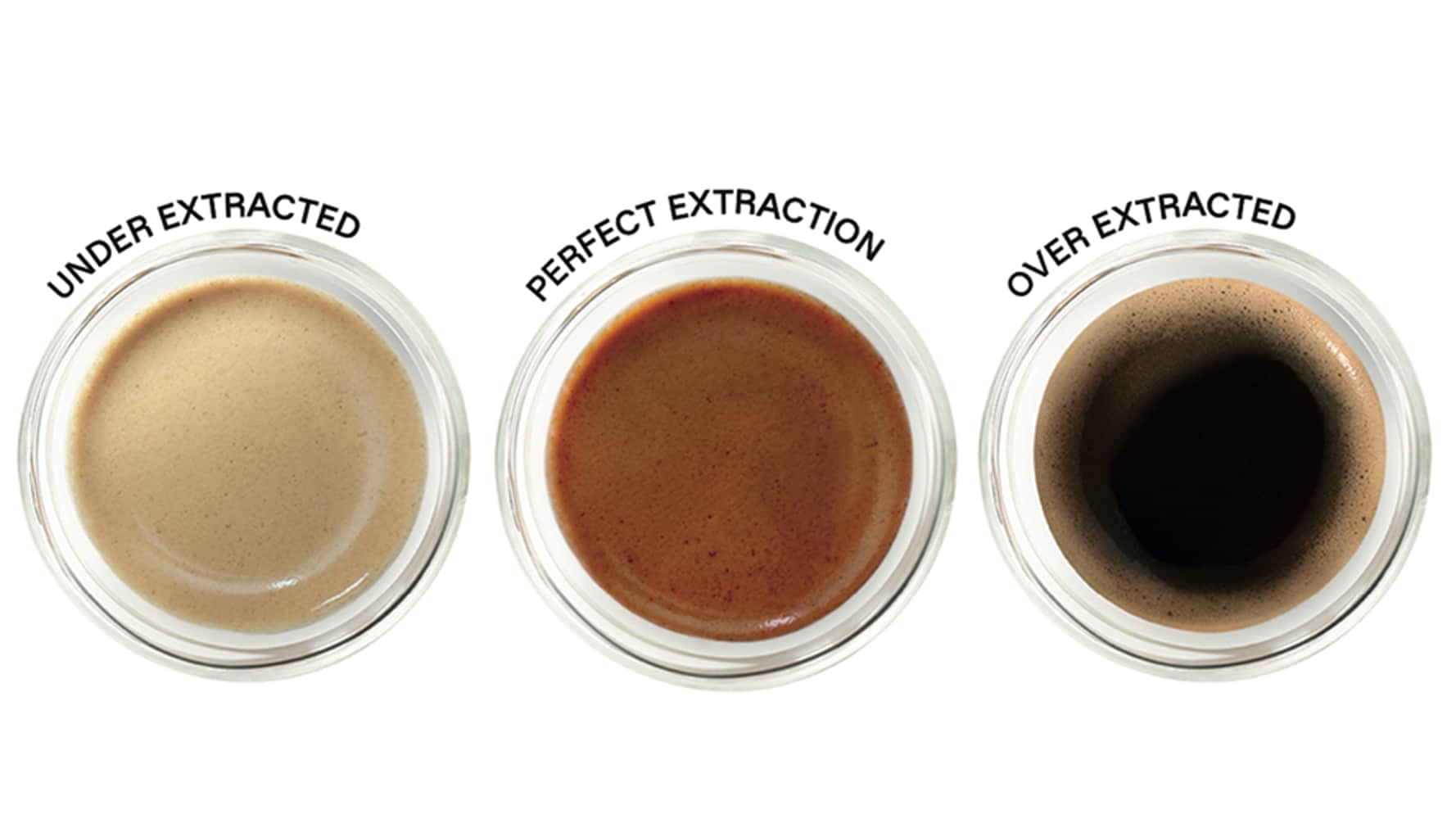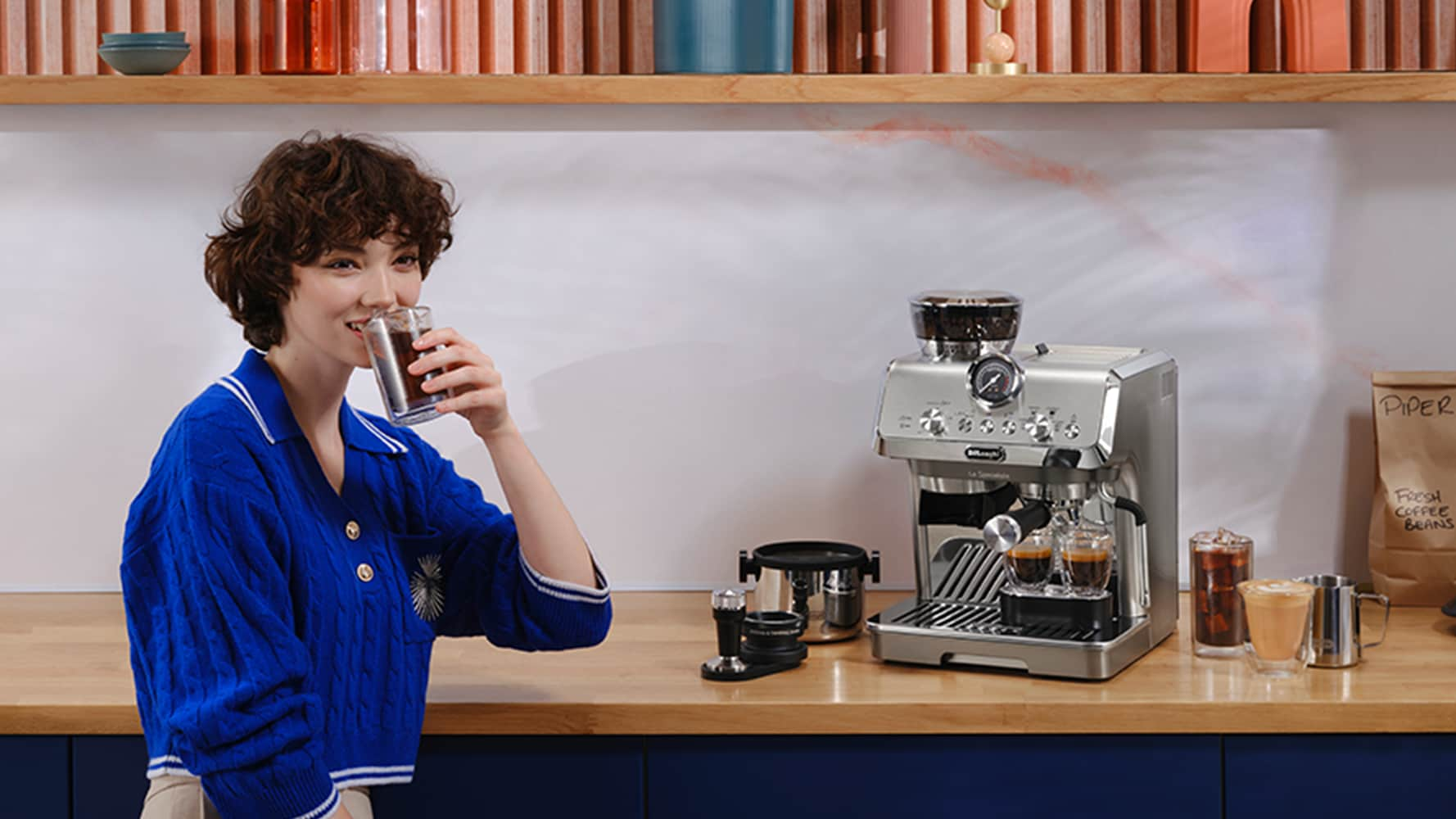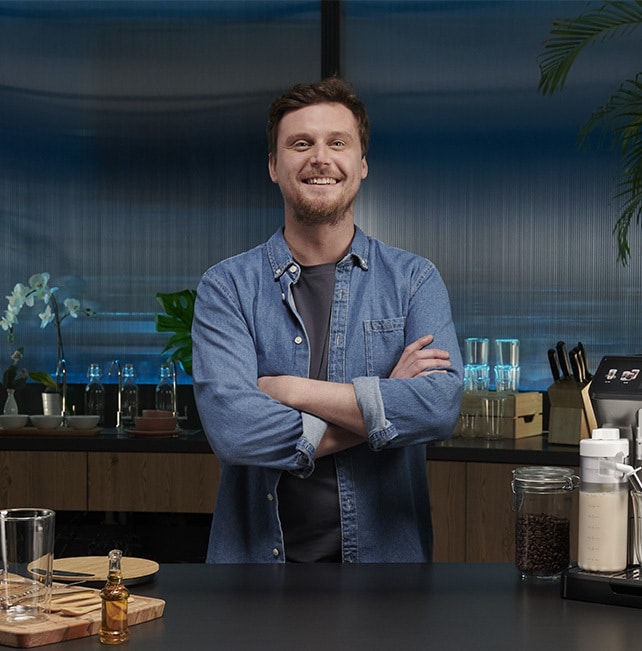
Bean culture
You could say a good cup of coffee only comes down to the beans, but that’s not true. Of course, good quality beans are crucial, but the coffee-making process comprises four essential steps for maximising the beans’ potential. The third phase, brewing, occurs after grinding and tamping.
What does brewing coffee mean?
Brewing, or pouring hot water over ground coffee beans, comprises the heart of coffee-making. The action infuses the ground coffee, absorbing the chemical elements passing through a filter to produce delicious coffee. Brewing methods vary, as do the infusion pressure, water temperature, and last but not least, percolation time – an Espresso, for example, requires only 20 to 30 seconds of contact between the coffee and the water: in just a short time, you could have a perfect cup that offers long-lasting, enjoyable pleasure.
How to make an Espresso perfetto: water first
The formula for an Espresso “perfetto” starts with the water you use: temperature and quality of water are fundamental. Water comprises 98% of the average cup of coffee, so it’s not a stretch to think that water quality significantly impacts the final result.
Local tap water contains certain levels of calcium and magnesium, so water quality, or the liquid’s “hardness”, refers to its mineral level, which influences how the hot water and coffee interact; water that’s too hard or too soft can negatively impact the final cup. Many experts, including Andrej Godina, Coffee Expert and Authorized Trainer at the Specialty Coffee Association, suggest measuring water hardness and if necessary, inserting water softener. If using bottled water, opt for one with a fixed residue of about 200-300 mg/L. The ideal brewing water is not too sweet with balanced minerals that enhance the coffee’s natural flavours without overwhelming them.
In addition to the right hardness, the water temperature must remain stable throughout brewing since how the water penetrates the coffee dose is key to a perfectly balanced extraction. The perfect brewing temperature is between 83° and 92° Celsius. However, coffee connoisseurs believe keeping to the lower end of the scale releases the coffee’s more complex flavours.

Getting pre-infusion and extraction right
Once the coffee and water are in place, pre-infusion and extraction occur. Pre-infusion involves ground coffee soaking gently in the filter before applying brewing pressure in order to ensure that water penetrates the grounds evenly once the extraction begins.
Extraction happens when pressurised hot water percolates through a layer of roasted, ground and compacted coffee and flows out from the filter spouts, extracting the characteristics of the coffee into the cup. It determines both the quality of the cup and the thickness of the crema, affecting the liquid’s fine, persistent texture.
Under-extraction occurs when the water flows too quickly, failing to capture the coffee grains’ substances. Yet, under-extraction isn’t tied solely to water flow; it can also be caused by old coffee, under-heated water, insufficient coffee grain dosage, or weak compacting. Under-extracted coffee is less full-bodied than the classic Espresso–the crema dissolves, the aromatics are weak, and the flavours are bland. Alternatively, overpacking the filter, too fine grinding and/or excessive compounding could lead to over-extraction. It results in a dark, exceptionally bitter liquid that emits an unpleasant aroma with a crema that tends to split in the centre and cling to the edge of the cup.
De’Longhi’s solution to brewing at home
The most sophisticated technology in a coffee machine is dedicated to the brewing process: De’Longhi engineers and technicians spent years researching the most effective methods to craft the technologies that render a premium coffee machine different from any other.
De’Longhi’s fully automatic and manual machines assist coffee lovers eager to achieve optimal brewing at home–they don’t have to worry about anything because the machines are developed and engineered so that brewing is always perfect.
To obtain a perfect coffee, each bean variety requires specific settings and should be treated differently: this is where Bean Adapt Technology comes into play by automatically adjusting the machine parameters to the type of grain.
Exclusive to some premium fully automatic machines like PrimaDonna Soul, it sets precise grinding, dosing, and brewing parameters for optimal coffee extraction, kicking off the coffee transformation journey with the touch of a button.
Premium manual coffee machines, like La Specialista Arte EVO, are designed to recall the look and feel of professional barista equipment. Their technological solution simplifies the coffee transformation process, making them well-suited to barista wannabes who love making coffee just as much as they love what’s in the cup.

For instance, Active Temperature Control Technology ensures the ideal brewing temperature by maintaining stable water temperature throughout the whole coffee brewing process. The high-performing Thermoblock with a controlled temperature system guarantees ideal temperature stability for brewing any coffee.
Dynamic Preinfusion Technology, featured on La Specialista Maestro, and La Specialista Prestigio, adapts the puck infusion length to the coarseness of the coffee ground, ensuring that the entire coffee surface gently and evenly comes into contact with the water for a perfect extraction.
Whether opting for a manual or fully automatic machine, coffee lovers brewing coffee at home can achieve a perfect Espresso thanks to De’Longhi. And for those looking to finish their Espresso with flair, frothing is the fifth and final step.
La Specialista Arte EVO
Discover a world of coffee possibilities with the latest member of the La Specialista Family – Arte Evo, the barista-inspired compact coffee machine, now serving Cold Brew in under 5 minutes.
Discover More.



Testo vario
Join us
Policies
Support